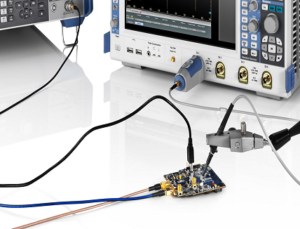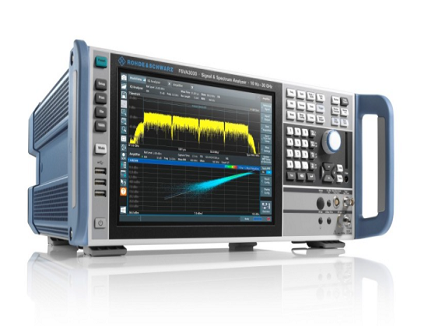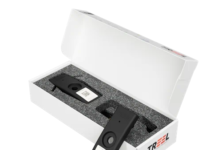
R&S FSVA3000 mid-range signal and spectrum analyzer – ideal for 5G NR
To analyze wideband signals for 5G NR and other future wireless standards & to meet this testing with a limited budget, Rohde & Schwarz is the first to bring an exceptional internal analysis bandwidth of 1 GHz to its mid-range R&S FSVA3000 signal and spectrum analyzer.
Manufacturers of future cellular and wireless systems, infrastructure and amplifiers can now profit from a wideband signal test solution that was previously available only in high-end instruments. Rohde & Schwarz has added an unparalleled internal analysis bandwidth of up to 1 GHz to its R&S FSVA3000 mid-range signal and spectrum analyzer. The new R&S FSV3-B1000 hardware option is available for all models from 7.5 GHz to 44 GHz, while comparable solutions offer just 160 MHz analysis bandwidth.

Thanks to its usabilty and high measurement speed, the R&S FSVA3000 supports manufacturers in the development and production of 5G NR base stations, mobile phones and components, especially in the 28 GHz and 39 GHz bands, while meeting tight time-to-market requirements. In combination with the supported 5G NR downlink and uplink measurement options, this makes the R&S FSVA3000 an easy to set up solution for analyzing 5G NR signals with several component carriers. The instrument, which also addresses users in Aerospace & Defense and automotive applications, can also characterize wideband amplifiers or can be used for troubleshooting, capturing even very short events.
The R&S FSVA3000, which comes with an advanced autoset feature allowing the quick configuration of frequently performed measurements, now offers sufficient bandwidth for SEM and ACLR measurements of wideband signals also in I/Q mode. The analyzer’s outstanding RF performance allows capturing and predistorting for instance a 200 MHz wide signal and measure the effects of distortion up to the fifth harmonic. The R&S FSVA3000 also supports measurement of short rise and fall times (down to 1 ns system rise time) and detection of ultrashort pulses. This allows the analysis of frequency agile signals within 1 GHz as used in radar and tactical radio.



















